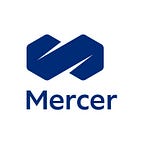Open MEPs — What’s All the Fuss About?
Open MEPS could lower costs, lead to better participant outcomes, streamline administrative duties, limit fiduciary responsibilities — and so much more.
By Neil Lloyd, Head US Defined Contribution and Financial Wellness Research, Mercer
Open MEPs are intriguing in that they could promote more plan coverage and savings leading to better participant outcomes. These plans could also reduce employer burdens by lowering costs and limiting fiduciary responsibilities.
If you follow articles about potential changes to the retirement landscape, you cannot miss references to open MEPs. So what is an open MEP and why all the fuss? An open Multiple Employer Plan (open MEP) refers to a single retirement plan that unrelated employers can offer to their employees. This plan is not to be confused with a multi-employer pension plan, which is a pension plan maintained under one or more collective bargaining agreements and to which more than one employer contributes. Open MEPs are intriguing because they could promote more plan coverage and savings leading to better participant outcomes. These plans could also reduce employer burdens by lowering costs and limiting fiduciary responsibilities.
Great Expectations
Most importantly, open MEPs could meaningfully improve retirement security for millions of American workers. The World Economic Forum has estimated that by 2050 the retirement savings gap in U.S. could approach $137 trillion.[1] Currently, the White House and Congress are pursuing a variety of proposals aimed at increasing workplace access to retirement saving plans. Some version of open MEPs is included in nearly all these proposals and expanding access to savings platforms has broad bipartisan support. Given this consensus and the desire to improve retirement plan coverage, we believe the question is when, not if, open MEPs become a reality.
In addition to the employer benefits noted above, open MEPs could also provide a viable structure for extending access to quality, affordable savings programs to self-employed people. In addition, open MEPs should achieve substantial economies of scale, which means lower costs — and thus a savings boost — for participants.
No single silver bullet
Importantly, to increase the probability of really closing the retirement savings gap, we must also consider issues such as auto-enrollment and auto-portability in addition to open MEPs. Auto-enrollment improves plan participation by defaulting employees into saving for retirement, and auto-portability minimizes savings erosion by discouraging early cash-outs.
The idea of open MEPs (as well as auto-enrollment and auto-portability) is not unique to the U.S. Indeed, we have seen many similar variations in other countries. As an industry, we should apply learnings and insights from global experiences in reforming the U.S. retirement system.
Devil in the details
As is the case with complex policy questions, some foundational issues still need to be resolved. For example, who will be allowed to offer open MEPs? The restrictions, standards of care or broader requirements that likely will be placed on open MEP providers are the questions garnering the most interest today within the retirement industry.
Similarly, the idea of plan sponsors no longer having full fiduciary responsibility is intriguing to many. According to Lex Machina, a provider of legal data and analytics, some 83,000 lawsuits have been filed under ERISA (the law governing retirement plans) since 2009.[2] Under a new open-MEP regime, how much fiduciary responsibility will be passed on to the provider, and how much will remain with the employer? Ironically, we do not need open MEPs to enable employers to better manage their fiduciary responsibility and reduce administrative complexities. Sponsors can offload most of these activities to a dedicated solution such as the Mercer Wise 401(k) or outsource their 3(16) plan administration responsibilities to a third-party administrator (TPA), in addition we have seen a growing trend with sponsors outsourcing their investment responsibilities to a 3(38) provider.
A positive transformation
We are confident that open MEPs will have a major impact on the financial services and investment industries. We attended the recent Defined Contribution Institutional Investment Association (DCIIA) Innovation Forum, where Executive Director Warren Cormier focused on the impact that litigation is currently having on plan sponsors. Warren presented results from a survey that suggested that in the absence of litigation, plan sponsors would be far more likely to offer retirement income products such as in-plan annuities, and to encourage participants to leave money in the plan after termination. Maybe the advent of a new group of pooled-plan providers, incentivized to take on fiduciary and litigation risk given the potential upside of increased market share, could be the catalyst for retirement income innovation for which many of us have been waiting.
The introduction of open MEPs clearly will reshape — and could positively transform — the retirement landscape. Increased access to quality, affordable savings programs could be a huge positive on its own. The desire for open MEP providers to keep their plans competitive for employers and employees may also accelerate new innovations, such as addressing retirement income and distribution advice.
Have questions or need more information? Learn more about Mercer’s Defined Contribution services.
[1] World Economic Forum. We’ll Live to 100 — How Can We Afford It? May 2017.
[2] Source: “2018 Delivered Key Decisions in ERISA Cases,” PLANADVISER, Dec. 31, 2018.
Mercer does not provide tax or legal advice. You should contact your tax advisor, accountant and/or attorney before making any decisions with tax or legal implications. This does not contain investment advice relating to your particular circumstances. No investment decision should be made based on this information without first obtaining appropriate professional advice and considering your circumstances. Click here for the Important Notices.
